PHOTOS: Guinea-Bissau drug trade
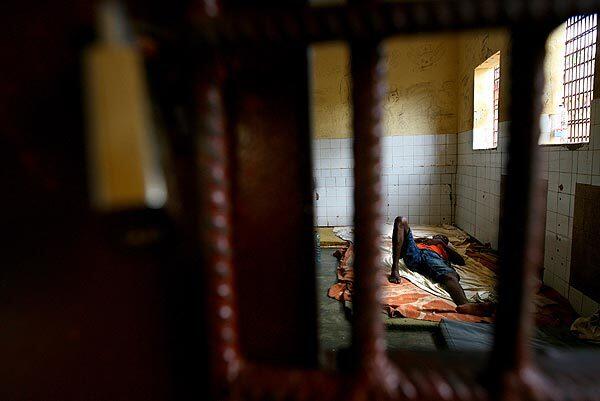
Inmates in Bissau are kept in a small holding cell in the capital. Guinea-Bissau’s lack of prisons is just one factor that makes the country a favorite of drug smugglers. (Liz O. Baylen / Los Angeles Times)
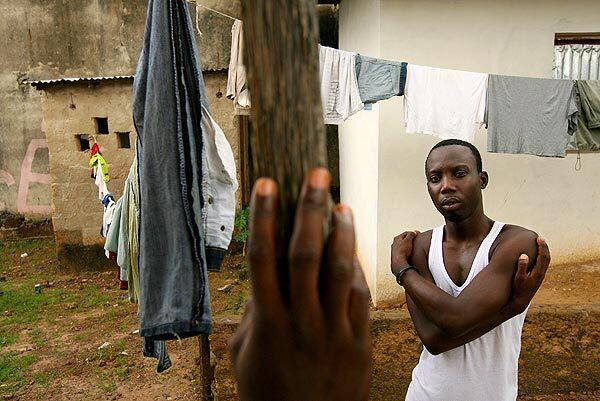
Junior Joseph Olivaz, 27, has been at the Quinhamel Center for one month after being apprehended for buying cocaine. The center is the country’s only drug treatment facility. (Liz O. Baylen / Los Angeles Times)
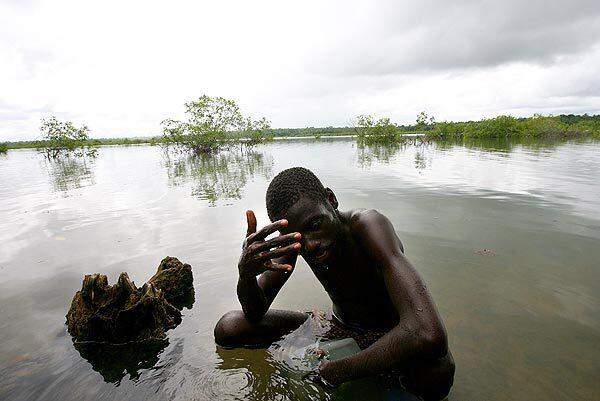
Augustine Beyai was brought to the Quinhamel drug treatment facility from Gambia by his family. (Liz O. Baylen / Los Angeles Times)
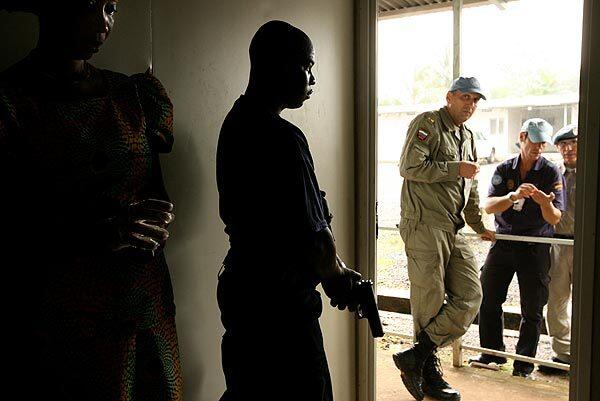
Foreign officials including Rudolfo Landeros of the U.S., far right, work to train police in Sierra Leone as part of a U.N. effort to combat drug trafficking. To his right are Emilio de la Calle of Spain and Igor Kreshchenko of Russia. (Liz O. Baylen / Los Angeles Times)
Advertisement
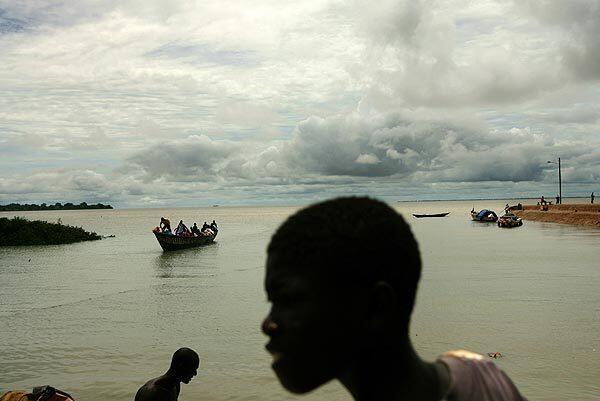
Residents of Bissau carry items by boat to sell on one of Guinea-Bissaus many islands. Most of the islands are uninhabited, but many have natural ports and abandoned airstrips that make them attractive to drug smugglers. (Liz O. Baylen / Los Angeles Times)
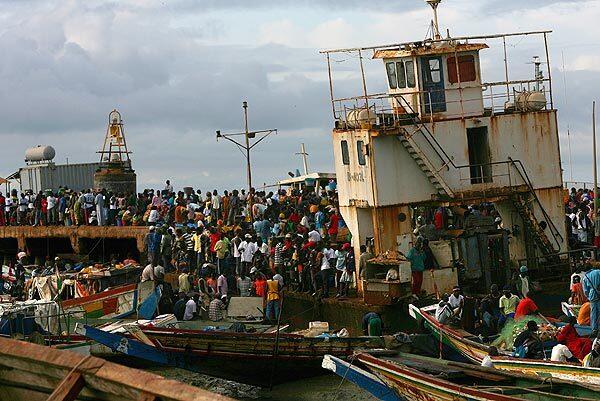
Hundreds of people gather at a Bissau port to buy and sell fish and other products. Drug smugglers’ new route through West Africa reflects a shift in consumption. Cocaine exports to the United States have declined, but they have doubled and tripled to European countries, where the strength of the euro against the dollar has brought more revenue for traffickers. (Liz O. Baylen / Los Angeles Times)
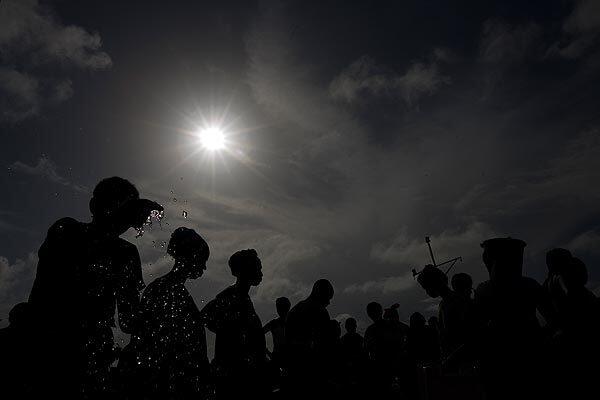
Market shoppers are silhouetted against the sky in downtown Bissau. (Liz O. Baylen / Los Angeles Times)
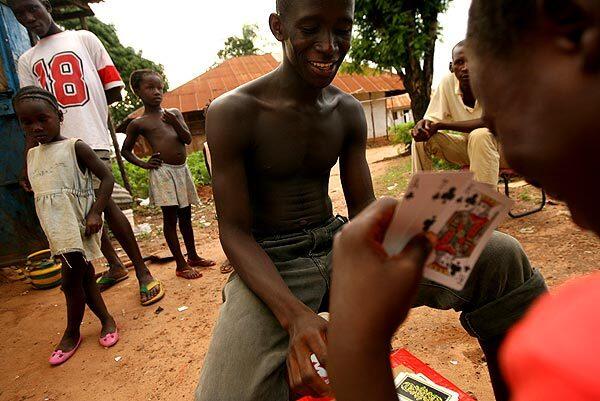
Simon Nanque, 17, center, plays cards with friend Julio Suba, 12, in Bissau. A recent U.N. report concluded that West Africa has “an endless source of foot soldiers who see few viable alternatives to a life of crime.” (Liz O. Baylen / Los Angeles Times)
Advertisement
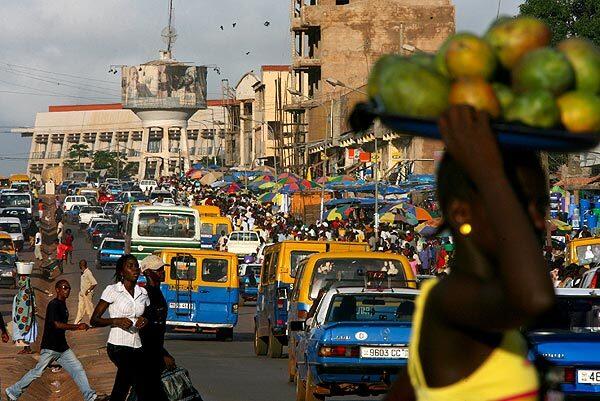
One of the main thoroughfares of Bissau, the capital of Guinea-Bissau. Since independence in 1974, the onetime Portuguese colony has suffered coups detat, dictatorships and civil wars. (Liz O. Baylen / Los Angeles Times)
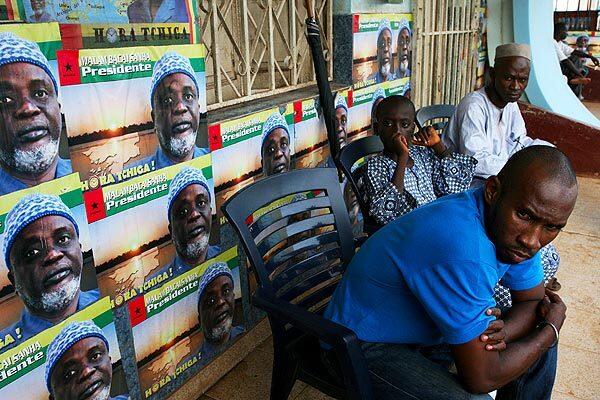
Malcolm X. Silva Morreno, right, 34, says he voted for President Malam Bacai Sanha because there were no better options. If Sanha keeps his job for the next five years, he will be the first head of state to complete a term of office in 35 years of independence. Morreno is joined near his place of business by Braima Cote, 11, and Djibril Cote, 44. (Liz O. Baylen / Los Angeles Times)
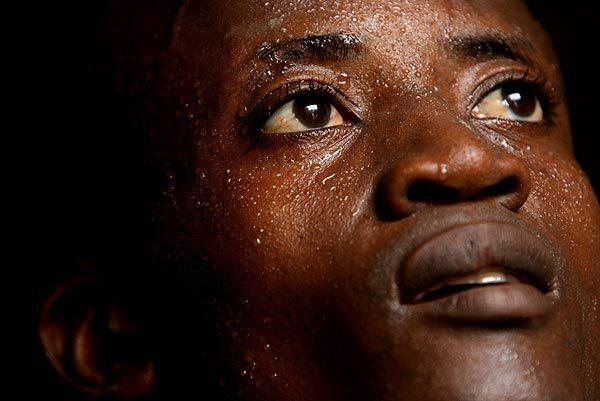
Ze Maria, 35, speaks to his boss while preparing cement at a construction site. One sign of an influx of drug money is a flurry of building in a seaside suburb known as the “ministers’ quarter.” (Liz O. Baylen / Los Angeles Times)
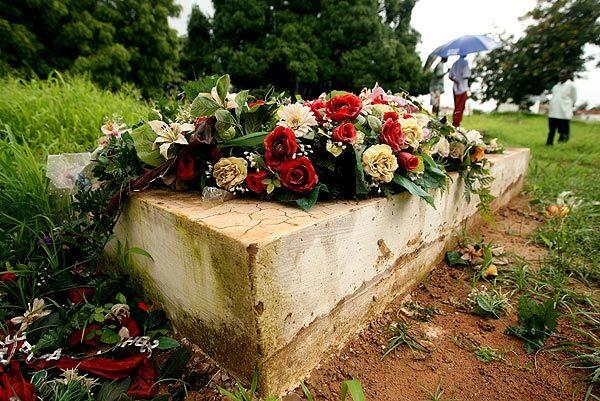
Flowers cover the grave of army chief of staff Batista Tagme na Waie on the outskirts of the capital. Hours after Tagme was assassinated in March, a group of his soldiers retaliated by hacking Guinea-Bissau’s president to death in his kitchen. (Liz O. Baylen / Los Angeles Times)
Advertisement
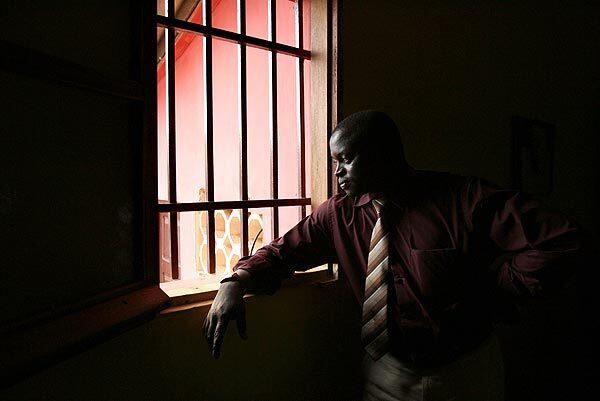
Edmundo Mendes, a senior police official in Guinea-Bissau, figures he needs about 10 times the officers he has, not to mention prisons in which he could hold suspects. (Liz O. Baylen / Los Angeles Times)







